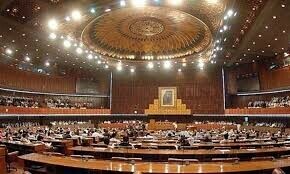WASHINGTON, Aug 24: In an interview given before he was nominated PPP’s presidential candidate, Asif Ali Zardari said that the president should be a figurehead without the power to dissolve assemblies.
In the same interview, with the Newsweek magazine, Mr Zardari said that the new president could grant a presidential pardon to Gen (retd) Pervez Musharraf.
The PPP leader rejected the charge that he was against Chief Justice Iftikhar Chaudhry.
“I personally am in favour of the chief justice, but there is a position in the party, which says that he has become too politicised in the last many months and he has been leading rallies.”
In a separate interview to America’s largest radio network, National Public Radio, Mr Zardari emphasized the need to work “hand in hand with the United States” to fight terrorists hiding in tribal areas.
In the NPR interview, recorded after his nomination, Mr Zardari talks of the ruling coalition as “a learning process” and claims that the people of Pakistan never believed he was corrupt or they would not have voted for his party.
“So the new president would play a more ceremonial role?” Newsweek asked.
“Yes, more ceremonial. Parliament is sovereign, and one has to look at the future of Pakistan’s democracy as more important than individuals as such,” Mr Zardari replied.
“Should the new president give up the powers that Musharraf seized -- being able to dissolve the parliament, for instance?”
“I think the president should not have the power to dissolve the assembly,” Mr Zardari said.
“We fought this war for democracy, and all the powers that Musharraf enjoyed were obviously non-democratic,” he added. “We need to have a debate in the parliament and see how strong we want the future president (to be) and how strong we want to make our prime minister.”
Although Mr Zardari said the day President Musharraf resigned was “a momentous day” for those who believed democracy was the best revenge, he showed no intention to arrest or prosecute the former head of state.
“Let’s see what the parliament decides,” said Mr Zardari when asked if Mr Musharraf could stay in Pakistan.
He denied that the PPP-led government made a pact with Mr Musharraf not to prosecute him before he resigned but acknowledged that “there is a general understanding that we are not looking to (get) into any messy fights” and “we are not interested in doing anything against him.”
Asked if Mr Musharraf could stay in Pakistan, if he decided to do so, Mr Zardari said: “He is welcome to stay. Why shouldn’t he stay?”
Mr Zardari said that so far the government had not granted indemnity to the former president as only the parliament could decide whether to do so or not. But “everybody knows the Pakistan People’s Party’s position is that we are not into revenge,” he adds.
In the Newsweek interview, conducted before his nomination, Mr Zardari said he hoped that he and Nawaz Sharif would stay united despite their differences.
In the interview, he sounded less certain and said that the coalition government “will be a learning process” for him whether it succeeded or not. “And the journey is important. It is in the journey that we find a lesson to full democracy,” he adds.
“I think democracy will succeed one way or the other. Fragile democracy is the trend in our part of the world. India has 40 parties together working in a democracy. We have four to eight parties working together. Hopefully, we will find a solution. Democracy has to grow. It is still a very young plant.”
“Is US more eager to root out the Taliban than the government of Pakistan is?, NPR asked.
“No, I think it is Pakistan’s problem first and then the US is there to help us,” he said. “The idea is to get to normalisation. It is not a question of moving them out. It is a question of getting things back to normal and having democracy in every region.”
Mr Zardari disagreed with a suggestion that the charges of corruption were like a political baggage for him.
“There is no baggage. If there was a baggage, PPP would not have won a sweeping victory in the country,” he said. “The people have spoken. They do not believe the charges. They never did, and never will.”
He added: “They were politically motivated cases, the world has said so. The judiciary has said so. And people of Pakistan have said so.”















































Dear visitor, the comments section is undergoing an overhaul and will return soon.